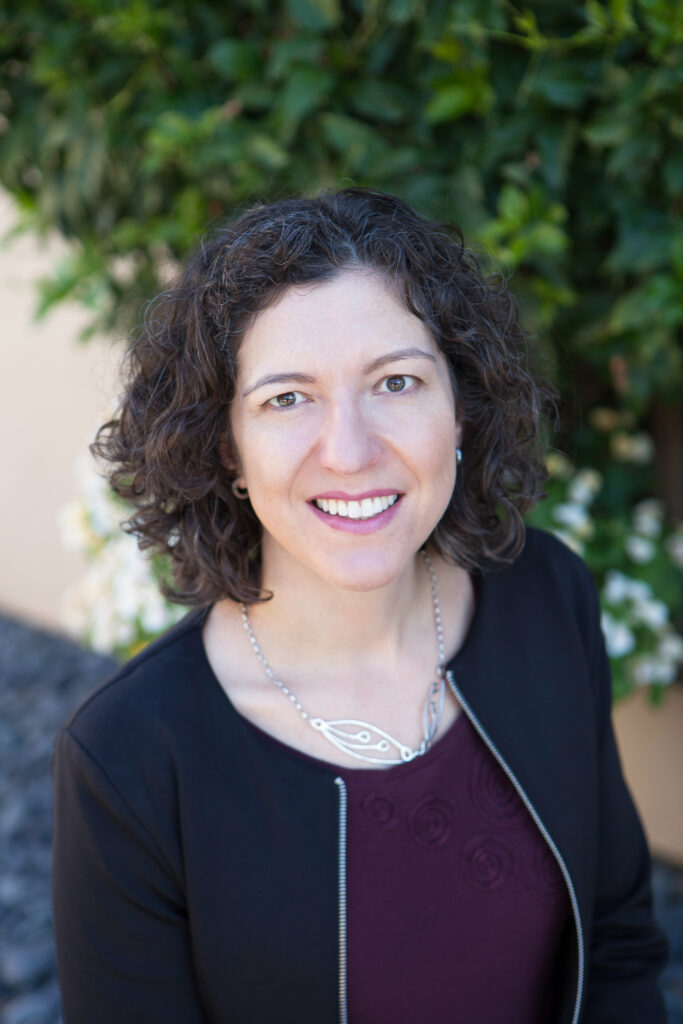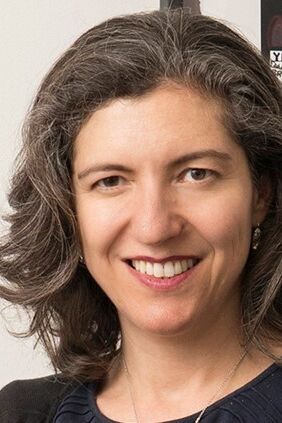- Fellow Highlights
Chimène Keitner’s (2001 Fellow) New Concise Treatise on International Law Released

Chimène Keitner, an international law professor at UC Hastings College of the Law in San Francisco, is a co-author of the fourth and newest edition of International Law Frameworks (Concepts and Insights), a widely used text on international law.
Chimène has never used an off-the-shelf casebook to teach basic international law; instead, she has compiled her own materials and assigned an earlier version of International Law Frameworks to provide background and context. The book’s author, well-known Emory Law Professor David Bederman, was somewhat surprised that Chimène assigned International Law Frameworks as her main text for the course. But Chimène’s students responded to the storytelling quality of International Law Frameworks, and they appreciated the contemporary and relevant nature of the other materials Chimène compiled, which ranged from judicial opinions, to scholarly articles, to legal memos, to news stories and debates on scholarly blogs.
Tragically, Professor Bederman passed away in 2011 at the age of 50, not long after moderating a panel on legal history and foreign relations law that Chimène convened in Atlanta. Despite his ill health at the time, “he still came and moderated the panel and offered his insights,” Chimène said. “He was just an amazing human being.”
When West Academic, the publisher of the Concepts and Insights series that includes International Law Frameworks, approached Chimène about writing the fourth edition, she was initially hesitant because of the time commitment, especially since she was also expecting her third child. But given Professor Bederman’s legacy, the importance of the topic, and her appreciation of the book’s approach and contribution, she ultimately decided to take on the project.
“People often think international law is completely separate from domestic law and unconnected to their lives. Others assume it’s just pure politics,” Chimène said. “I love this book because people can pick it up and read it from cover to cover to gain a more accurate understanding and appreciation of international law, whether they are students, practitioners, or even members of the general public.”
Chimène radically restructured the book and added substantial new material, but the basic approach remains the same. “I’m extremely indebted to David for having written the first three editions,” Chimène said. “One of the amazing things about this posthumous co-authorship is that it was much more seamless than I would have imagined. One of the reasons that I chose this book for my students to begin with is that my approach to international law is very in sync with David’s. I’m sorry he’s not able to read it but I hope he’d be pleased with it.”
Growing up bi-nationally, Chimène has firsthand experience with international law. Her father and his family were refugees from the Hungarian Revolution who eventually found their way to a new home in Canada, where Chimène and her brother were born. Together the family moved to the United States when her father joined the medical faculty at Brown University.
From an early age, Chimène experienced the significance and impact of borders, but also their imaginary quality. The tensions associated with actual and imagined borders intrigued and perplexed her.
It was that tension that drew Chimène to her career as an international scholar. After earning a degree in history and literature at Harvard, she went on to study nationalism and national identity at Oxford University as a Rhodes Scholar, where she earned a doctorate in international relations. She then attended Yale Law School, where she earned her JD with support from the Paul & Daisy Soros Fellowships for New Americans.
For the past decade, Chimène has been firmly rooted in academia. Today, she works at the UC Hastings College of the Law in San Francisco where she is Harry & Lillian Hastings Research Chair and Professor of law. She researches and publishes widely, and she remains passionate about teaching international law.
International law is everywhere in Chimène’s eyes. From reading the newspaper headlines, to mailing a letter halfway across the world with a single country’s postage stamp, to the cross-border flow of consumer products–international law is at work. Unfortunately, many people only recognize international law when it’s not working.
“The breakdowns of international law might seem more visible and dramatic than its successes, but the successes are what have enabled the world community to get where we are today,” Chimène explained.
Focusing on the field of international law can make it hard to stay positive, though. In describing a typical day Chimène said, “You come home after a day of lecturing about genocide, your Twitter feed is full of news of deaths of Syrian refugee children and the siege of Aleppo . . . It can be hard to keep a positive attitude.”
Yet ultimately Chimène is hopeful. “More and more people are realizing how interconnected the world is, and that they can’t expect to solve problems unilaterally,” Chimène explained.
Chimène cautions that along with becoming more aware of the complexities of global issues, we have to remember “that while borders are not going to disappear tomorrow and they perform important functions, we also shouldn’t overemphasize them.” ∎
Keep Exploring
-
 Read more: The Public Voices Fellowship of PD Soros, in partnership with the Oped Project: Year Four
Read more: The Public Voices Fellowship of PD Soros, in partnership with the Oped Project: Year FourThe Public Voices Fellowship of PD Soros, in partnership with the Oped Project: Year Four
-
Read more: NOT ON MY RESUME: Ming Hsu Chen
- Fellow Highlights
- Fellows in Action
NOT ON MY RESUME: Ming Hsu Chen
-
 Read more: Kathy Ku Steps into Leadership as PDSFA Chair
Read more: Kathy Ku Steps into Leadership as PDSFA Chair- Board of Directors
- Fellowship News
Kathy Ku Steps into Leadership as PDSFA Chair
-
 Read more: Q&A with MD/PhD Student Silvia Huerta Lopez
Read more: Q&A with MD/PhD Student Silvia Huerta LopezQ&A with MD/PhD Student Silvia Huerta Lopez
